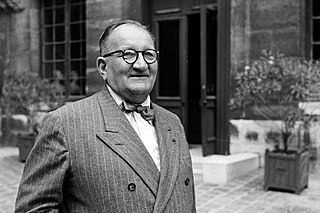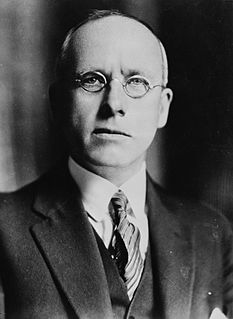A Quote by Etienne Gilson
History is the only laboratory we have in which to test the consequences of thought.
Quote Topics
Related Quotes
There are two consequences in history; an immediate one, which is instantly recognized, and one in the distance, which is not at first perceived. These consequences often contradict each other; ... look to the end of an accomplished fact, and you will see that it has always produced the contrary of what was expected from it.
I have a new theory of history, which is certain things happen because they seem like a good idea at the time. And suburbia seemed like a good idea at the time, but it was a special time and place in history, with special dynamics. And now, we're going to have to live with the consequences of that. And the consequences will be tragic.
Every year tens of thousands of animals suffer and die in laboratory tests of cosmetics and household products...despite the fact that the test results do not help prevent or treat accidental or purposeful misuse of the products. Please join me in using your voice for those whose cries are forever sealed behind the laboratory doors.
As man reaches out toward the twenty-first century, he will learn to be suspicious of all ideas that are not formulated so that they can be tested by observation. He will realize that the history of human thought shows that the ideas of which we are surest are the ones we most need to test. He will realize that his common sense only mirrors his training and experience. What seems natural and right to him is usually a reflection of the conditions under which he spent his first decade of life.
The flow of action continually produces consequences which are unintended by actors, and these unintended consequences also may form unacknowledged conditions of actions in a feedback fashion. Human history is created by intentional activities but is not an intended project; it persistently eludes efforts to bring it under conscious direction.
The International Space Station is a phenomenal laboratory, an unparalleled test bed for new invention and discovery. Yet I often thought, while silently gazing out the window at Earth, that the actual legacy of humanity's attempts to step into space will be a better understanding of our current planet and how to take care of it.
The Greeks really believed in history. They believed that the past had consequences and that you might be punished for the sins of your father. America, and particularly New York, runs on the idea that history doesn't matter. There is no history. There is only the never-ending present. You don't even have your family because you moved here to get away from them, so even that idea of personal history has been cut at the knees.









































